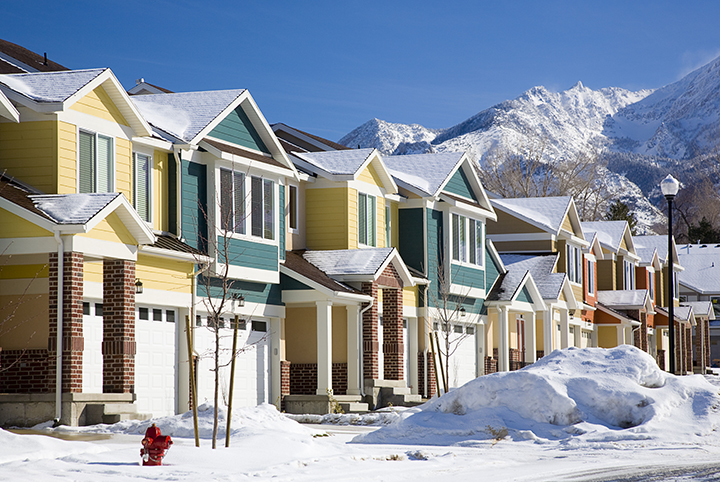
Published February 5, 2019, Updated March 15, 2020
Scott McGillivray is a real estate expert and host of HGTV Canada’s Income Property and Moving the McGillivrays.
There are lots of homebuying myths out there and if you are thinking of buying a house, I want you to leave behind these 10 common homebuying myths that many people still believe. Reading this now could save you a lot of heartache and money
1. Now is Not a Good Time to Buy
There’s no such thing as a bad time to buy. If you’ve done your research, created a smart budget and set aside a healthy contingency, you shouldn’t wait. No matter what anyone says, no one can predict what’s going to happen with the market. When it comes to buying real estate the best time to buy was yesterday, the second-best time is today and the worst time is tomorrow.
Related: 7 of the Worst Things Scott McGillivray Has Come Across in Canadian Homes
2. Buying is Always Better Than Renting
I’m a huge proponent of investing in real estate, but it’s not right for everyone. If you’re in a temporary position or planning on moving in the short term or if you have to take on unrealistic interest rates in order to buy, renting can be the smarter option.
3. Your Home is Guaranteed to Go up in Value
I always say that the real estate market is like a yoyo on an escalator – it goes up and down but eventually will end higher. That said, an overall increase in value can take many years and it can have a lot to do with value-adding improvements. If you’re in it for the short term, don’t just assume you’ll make money on your house. A lot can happen and an increase in value over a short period is definitely not a guarantee.
4. All You Need is a Down Payment
People get caught up in the idea that all they need to buy a house is a down payment, but that’s definitely not the case. Lawyer fees, land transfer taxes and other closing costs all factor into play. Also, you need to have an emergency fund ready in case something goes wrong. Unlike renting, when you buy a house, you are financially responsible for all repairs.

5. You Should Buy as Much as You Qualify For
I always suggest creating your own budget and determining what you can afford based on the rest of your life and lifestyle. If – after doing that – you’re approved for more than anticipated, it doesn’t mean you can suddenly afford more. Just because someone is willing to loan it to you doesn’t mean you can comfortably pay it back without compromising on other things. Create your budget and stick to it.
6. You Don’t Need a Home Inspection
It amazes me that people still believe this. But when it’s a seller’s market a large number of people forgo this condition in order to make their offer more appealing. Big mistake. Buying a house is not a game that you win – if you get the house and it turns out to have a ton of problems it can add up to huge costs and major headaches.

7. It’s Cheaper to Leave the City
Yes, buying a house in the city is often quite expensive. However, you need to take a lot of things into account when you buy a house. What’s the cost of commuting, for example? Sometimes that alone can make up the difference. What about maintenance? Houses in the country tend to sit on bigger lots and require more yard work. These things may seem small on their own, but when you add them up they can be quite costly.
8. It’s Best to Buy the Worst House on the Best Street
This is correct in theory because you can make improvements on the house and increase the value of the home. However, if the cost to make the house livable is more than you can afford, you can get yourself into some trouble. Use your best judgement when determining what you can live with and what fixes you can afford.
Related: Scott McGillivray Reveals His Top 10 Tips for a Stress-Free Move
9. Always Go With the Cheapest Lender
Sure, the lowest interest rate always sounds good, but it’s important to look at your options and read the fine print. There may be other reasons why going with a different lender is the right choice. For instance, the term of the mortgage can have a huge impact. If you take a one-year term because it has a lower rate than a five-year term, you may save, but if in a year the rates have gone up, it may cost you a lot more to renew.
10. Buy in the Spring Because There’s More Inventory
There may be more options in the spring, but buying in the winter or even the fall can save you a lot of money. People who list their homes in the winter often do it because they need to sell fairly quickly and as a result, they’re more likely to negotiate.
Images courtesy of Getty Images and HGTV Canada
HGTV your inbox.
By clicking "SIGN UP” you agree to receive emails from HGTV and accept Corus' Terms of Use and Corus' Privacy Policy.



